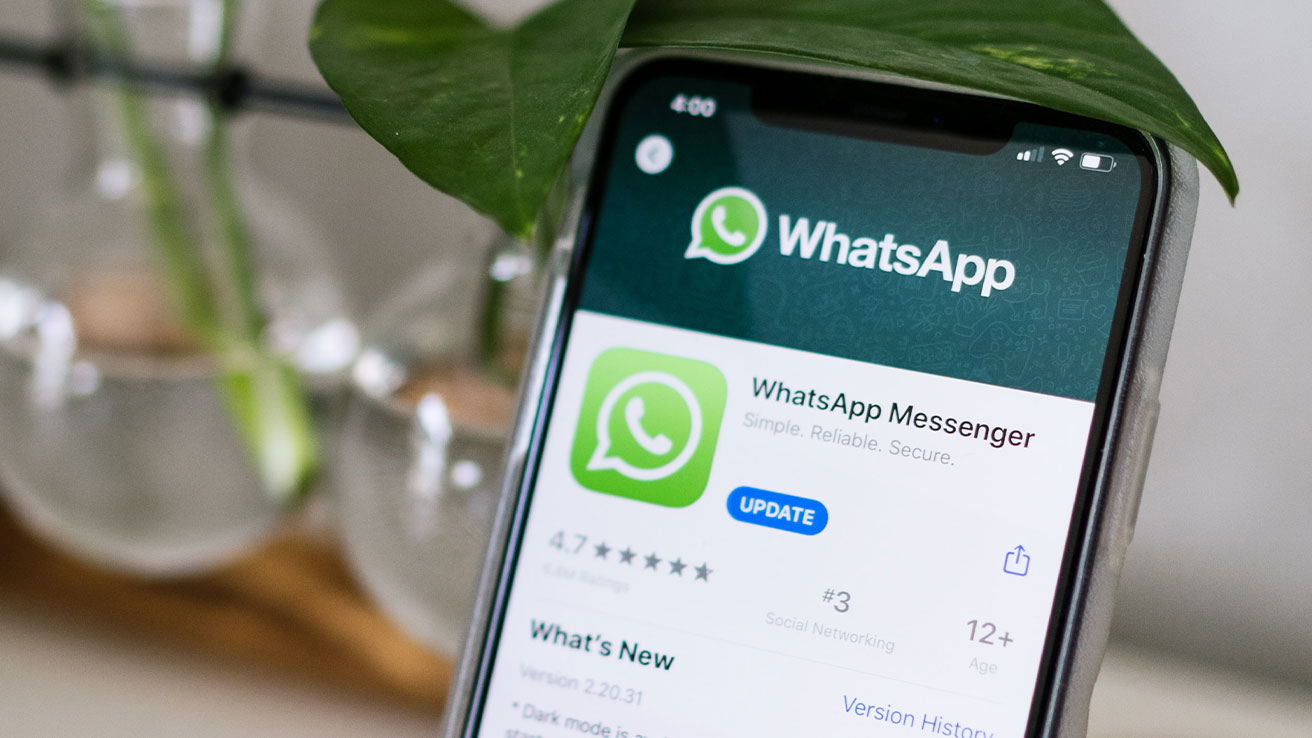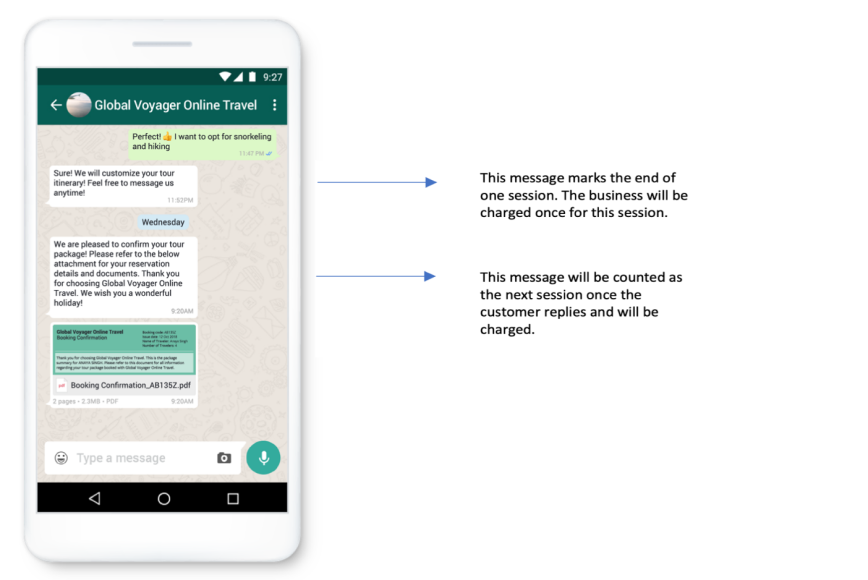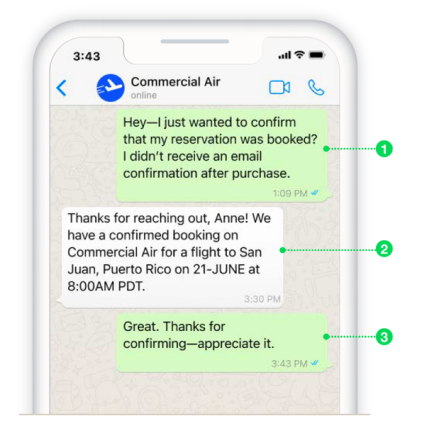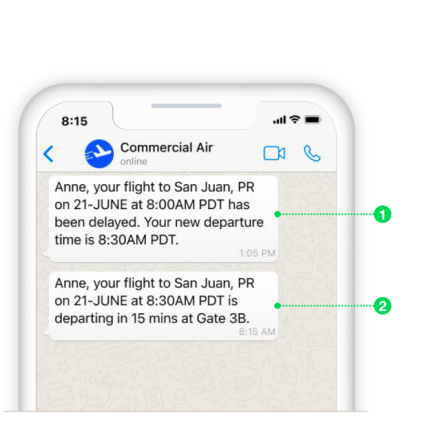WhatsApp’s pricing model - what’s new?
The world’s most popular messaging channel has changed its pricing model. Our Future Messaging expert, David Creasey-Benjamin, explains what this means for businesses in a Q&A session
David Creasey-Benjamin

As of February 1st, 2022, WhatsApp brought into effect a new conversation-based pricing model. This means that businesses will now be charged for every conversation they have with their customers during a 24-hour window. Businesses can exchange an unlimited number of messages with their customers during this window which can allow businesses to have meaningful and impactful interactions.
To understand this change further, we chatted with one of our Future Messaging experts, David Creasey-Benjamin. Here are the excerpts from the discussion.
What is the new pricing model and how has it changed from the previous model?
WhatsApp’s new pricing model is conversational - really reflecting how the channel is used and allows business to better predict any costs. It’s a simple model that allows for unlimited messages in 24 hours for a single price. The price is set by who starts the conversation. So, if the business starts the conversation with a proactive message, then there is one cost, and if the customer reaches out first, there’s a lower one.
The new pricing model opens avenues for businesses to reach out and build a bond with their customers even before they have an issue or inquiry. For customers, this change will mean more personalized and proactive communication from their favorite brands.
According to the new pricing model, a session begins when the business replies to a customer-initiated message or sends one proactively to the customer. The business is charged once for the first 24-hour session and for subsequent 24-hours session if the conversation continues.
The changes work really well with the opening up of outbound messaging types which happened at the end of last year, and now means as long as the customer is opted in the range of proactive notifications a business can send is far wider, including some promotional content. While the opt-in, rightly, continues to be mandatory, the ability for businesses to initiate conversations proactively across this new spectrum is a game-changer.

Are there any other changes or exceptions that businesses need to be aware of?
One of the major changes is that the customer-initiated messages are now charged as opposed to being free of cost for the first 24-hours previously. WhatsApp’s latest pricing model charges both business and customer-initiated messages. However, the customer-initiated messages are priced lower.
Businesses are now also allowed 1,000 free messages every month to interact with their customers. These messages can be customer or business initiated.
Well worth noting though is that customer-initiated messages coming from call-to-action buttons of ads from WhatsApp or from a Facebook page, are free of charge for 24 hours from the start of the conversation. This makes WhatsApp extremely attractive as the call to action direct from an advert allows businesses to make the most of their ad spend to generate new digital first clients.
The charges also vary based on the country the customer’s phone number is from. The rate card for each country and region can be found here.
How does this change benefit businesses?
This pricing change is a great opportunity for businesses to expand their scope of interactions with their customers and establish an ‘always-on’ presence alongside the ability to send relevant, personalized promotional offers, discounts, product recommendations, and alerts. That said, businesses also need to be wary of not spamming their customers which can reduce their Quality Rating.
The proactive outreach messages still go through the WhatsApp template approval process, but once the customer replies the conversation is then free form. The flexibility to send customized messaging hugely benefits businesses looking to send media-rich notifications and personalized updates.
Let’s look at examples of customer and business-initiated conversations to understand the pricing better:
Customer initiated conversation:

IMessage 1 – The passenger begins the session with an inquiry to the airline. There is no charge to the business so far.
Message 2 –The airline responds to the passenger with the required information which incurs a charge to them. However, the airline will only be charged once for all messages exchanged within the 24 hours of the passenger’s first message.
Message 3 – The passenger replies to acknowledge the information shared by the airline and confirms closure of the session.
In this scenario, the airline is charged for one passenger-initiated session.
Business initiated conversation:

Here the airline initiates communication with the passenger to deliver critical information ahead of their travel.
Message 1 – The airline proactively notifies the passenger of a delay in the departure of the flight. This begins a session for the airline.
Message 2 – The airline sends a follow-up message to the passenger 15 mins ahead. This message, as sent within 24 hours since the first message is not charged again.
You can find out more about the examples and details of how the pricing works here.
The pricing model undoubtedly augments businesses’ ease of conversing with their customers and creating ongoing interactions. The session-based pricing allows businesses to have an always-on presence attending to customer service inquiries and promoting their products and services equally.
Have more questions around WhatsApp or its pricing? Chat with our Future Messaging team today to know more or schedule a demo.